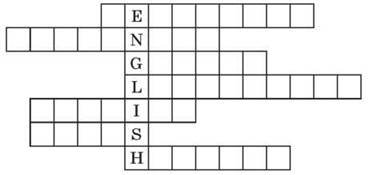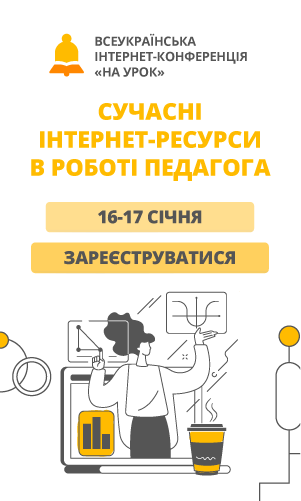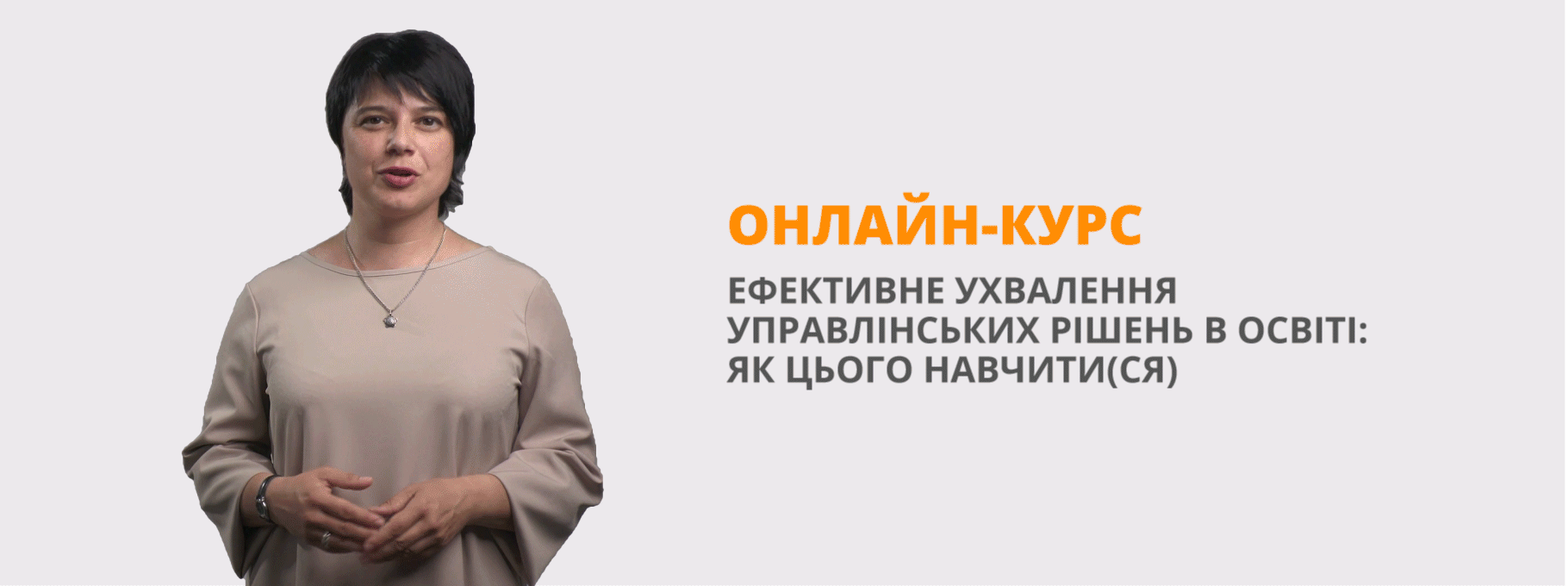Конспект уроку англійської мови у 6 класі "School Subjects"
НВК «ЗОШ І-ІІІ ступеня №1 – гімназія імені Героя Радянського Союзу В. Газіна» смт Ратне
ШКІЛЬНІ ПРЕДМЕТИ
Підготувала Ткачук Л.В.
ENGLISH LESSON
6th Form
Schools Subjects
Objectives: to train pupils in usage of active lexical units; to revise the usage of Present Simple; to improve pupils’ listening and reading skills, to encourage their speaking.
PROCEDURE
І. Warm-up
T.: Are you all right? Are you ready to work? So begin our lesson.
I know that school is a part of your life. That’s why we continue to speak about your school days. Tell me, please, about your interests, what you are good at, what your are interested in, what your are crazy about.
P.: I am interested in….
I am crazy about….
I am good at…
I am bad at…
Puzzle
T.: Fill in the names of your school subjects and you will solve this puzzle.

Key: Geography, Ukrainian, German, Literature, Drawing, Maths, History
II. Main part
- Checking up homeassignment.
The pupils listen to the text of exercise 2 p.48 check their answers.
- Speaking.
Complete the following phrases:
I like to go to school because ___ (like Maths, meet with my friends, have a lot of extra-school activities, know many interesting things, communicate with classmates, do some experiments, learn everything about computers, play games during the breaks).
I don’t like to go to school because ___ (have to wear a school uniform, get up early, don’t like Maths, have 7 lessons a day, have much homework, have to listen to the teacher, can’t use mobile phone )
Use the words from the box into two columns and then say what you are allowed and not allowed to do.
|
shout in the canteen, run in the classroom, come back home late, miss lessons, come to school without school uniform, draw at the English lessons, run during the breaks, use a computer more than 2 hours, play football in the gym, do some experiments, find many interesting things on the Internet, solve the puzzles, come late for the lesson, run in the classroom
|
|
We are allowed to... |
We are not allowed to. |
|
|
|
Example: We are allowed to run during the breaks but we are not allowed to run in the lab.
3. Pair work
Ask each other what you usually do at the lessons.
P1: What do you usually do in Maths?
P2: I usually do the sums in Maths.
1) Ukrainian — write the letter, complete the sentences
2) Art — draw the poster
3) Literature — read the story, recite poems
4) English — learn the new words, translate the texts
5) Geography — find this river on the map, learn about our planet
6) History — fill in the chart, hear fascinating stories
7) IT — make a presentation
8) German — make up the dialogue, match the sentences
9) Craft – sew, embroider, work with wood
10) PE – play different sports
11) Maths – subtract numbers, add numbers, multiply numbers, divide numbers
- Practise the vocabulary
The teacher asks pupils to guess what subject it is.
do the sums
learn poems by heart
study the planets in the Solar System
sing folk songs
read about Ukrainian hetmans
play football
show different countries on the map
draw funny animals
write compositions
learn to use a computer
study British culture
support our team
P. At the Maths lessons we do the sums.
4. Listening.
The pupils listen to the English song about school subjects and do the task after listening (complete the missing words). www.English on Tour Unit 1-8 School Subjects
- Read the text.
Dear Paul,
How are you? Thank you for your letter. Last time I promised you to tell about my school.
So, this year I’m in the sixth form. We have got some new subjects, for example Geography which I like very much, so we’ve got more lessons every day. As I wrote last time we have lunch from 12 o’clock to 12.20. Some pupils eat in the canteen but I like bringing my own lunch because my mother makes great sandwiches.
Now we’ve got 5 or 6 lessons every day so we’ve got a lot of homework and it takes us several hours to do it. Sometimes we have to sit up to write a composition, to prepare a report or to learn a poem by heart. As I like Ukrainian Literature I read a lot too.
I’m interested in foreign countries, their culture and peoples so the subject I like most is English. We have very interesting English lessons because our teacher trains us in different ways. We learn new words, dramatize texts and dialogues, discuss interesting things, do role-plays, listen to tapes and speak a lot. Our teacher usually supports us when we work in pairs and make up our own conversations.
Are things very different at your school?
Best wishes,
Fred.
Answer the questions.
1) How many favourite subjects has Fred got? What are they?
2) Why doesn’t he have lunch in the canteen?
3) Why has he got much homework?
4) What is Fred interested in? Why?
5) What do they usually do at the English lessons?
6) Who helps them to make their own conversation?
5. Work in groups of six.
Write a short report about your classmates’ favourite subjects.
Example: Five pupils in our group like Maths. All pupils like History. Only two pupils like Geography.
|
|
English |
Geography |
Maths |
Biology |
PE |
Craft |
|
|
v |
|
|
|
|
|
|
|
|
x |
|
|
|
|
|
|
|
|
|
|
|
|
|
|
|
|
|
|
|
|
|
|
|
|
|
|
|
|
|
|
|
|
|
|
|
|
III. Summary.
T: What is your favourite subject and why?
Answer the question.
What do you usually do at ___ lesson? — We ___.
Make a chain: T —► P1 —► P2 —► P3...
Homeassignment.
Ex.5 p.50
Hi, there today I’m going to tell you
All about subjects I study at _____!
I like to learn about the world,
I like to learn
How things are made
I like to find out
How things work,
To study hard and get good grades.
School subjects every day I study
Art, English and History
School subjects every day I study
Maths, PE and ICT
I have lessons in the morning,
And more lessons in the afternoon,
I concentrate to get good grades
Then do my homework after school
School subjects every day I study
Biology, Physics and Chemistry
School subjects every day I study
Music, French and Geography
I like to learn and meet new friends,
But that’s not where this story ends,
School is cool and that’s a fact,
A place to learn the skills I lack.


про публікацію авторської розробки
Додати розробку
